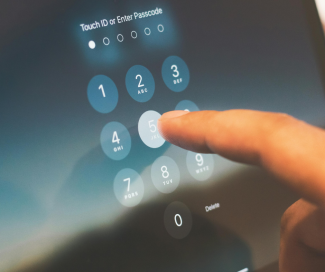
The Importance of CyberSecurity Awareness
We can’t overemphasize the importance of consistently taking action to reduce risks when online or using your phone.
Released in April, the FBI’s 2024 Internet Crime Report, compiled by the Internet Crime Complaint Center, logged 859,532 complaints of suspected internet crime, with reported losses exceeding $16 billion—a 33% increase from 2023.
In reality, many don’t report, and losses are likely much higher.
The top three cybercrimes by number of complaints reported by victims in 2024 were phishing/spoofing, extortion, and personal data breaches. Individuals over 60 suffered the highest financial losses, totaling nearly $5 billion—almost double the $2.5 billion reported by those aged 50 to 59. They also filed the most complaints overall, highlighting their disproportionate vulnerability. Victims of investment fraud, specifically those involving cryptocurrency, reported the most losses, totaling over $6.5 billion.
Digital assets
Confused about cryptocurrencies like Bitcoin or Ethereum? You’re not alone.
People use cryptocurrency for many reasons, such as quick payments, avoidance of bank transaction fees, or simply because it offers some anonymity. Many hold cryptocurrency as an investment, hoping the value rises.
Yet, paying with cryptocurrency does not come with legal protections that users of credit cards enjoy.
Payments aren’t reversible unless the recipient refunds a payment to the sender, and some information about your transaction will be public because it is recorded on a public ledger called a blockchain.
Steer clear of the crypto con
Growing interest in crypto has led to an explosion of scams and fraudulent activity.
Activities the Federal Trade Commission warns against include
Only scammers demand payment in cryptocurrency. No legitimate business is going to demand you send cryptocurrency in advance to buy something or protect your money.
Avoid those who promise big profits. Those promising big returns with no risk are criminals.
A so-called “investment manager” contacts you out of the blue. They guarantee a big profit if you buy cryptocurrency and transfer it into their online account. The promoted investment website looks real, but it’s fraudulent, and so are their promises. You’ll struggle to withdraw your money or be forced to pay high fees.
You answer an ad for a job that only pays in Bitcoin. It’s all online, you work from home, and it sounds like easy cash. After receiving token payments, promised payouts never seem to be deposited into your account. But scammers keep asking you to deposit crypto to maintain your job, claiming big payouts are forthcoming.
Have you ever received an unsolicited text message from an unfamiliar phone number? The scammer will ask a simple question, hoping you’ll respond, even if it’s to inform them that they misdialed.
They will apologize, then try to engage you in a conversation. As they gain your trust, they will share how you can accumulate riches, often through cryptocurrencies. Send them money and you’ll never see it again. Instead, ignore the text and block the number.
Love and money.
Online dating sites are everywhere. Many are legit, but fraudsters lurk in shadows, preying on the unsuspecting. If you meet someone on a dating site or app, and they want to show you how to invest in crypto, ask you to send them crypto, or ask for cash, that’s a scam.
Bottom line: Never send money or gifts to a “sweetheart” you haven’t met in person. Many will claim that it’s an emergency or some other important reason. They will continue to request funds until you break off communication or bleed you dry.
Here are some additional tips that the FBI offers to help avoid becoming a victim:
Be careful what you post because scammers can use that information against you.
Only use dating websites with national reputations, but assume that con artists are trolling even the most reputable sites.
Go slow and ask questions, and research the individual’s pictures and profile using other online search tools to ensure someone else’s profile was not used or to see if that same pitch is being used on multiple victims at once.
Watch for these warning signs:
The individual sends you a photo that looks like it’s out of a magazine, professes love quickly, or tries to isolate you from family and friends.
The individual claims to be working and living across the country or overseas and makes plans to visit but always cancels because of some emergency.
They are in no hurry. Why? They are getting to know you. You are in their pipeline. They have been “working” other individuals for quite some time.
Why romance scams, you may ask?
Yet, let’s state the obvious. When your head is clear, you make better decisions. When your heart is involved, emotions may cloud your thinking.
If you are corresponding with someone online whom you have never met, and they ask you for money for some contrived situation, listen to the voice in your head: “Something’s not right. Are they trying to scam me?” The short answer is yes.
You may find the person you’ve been looking for. But be smart. Be careful. Arm yourself with knowledge. When your emotions are involved, it’s easy to let your guard down.
If you have any questions, we’re always here to help. Our priority is to give you the knowledge and resources you need to stay protected from scams and fraudulent activity.
Original Source: Horsesmouth

